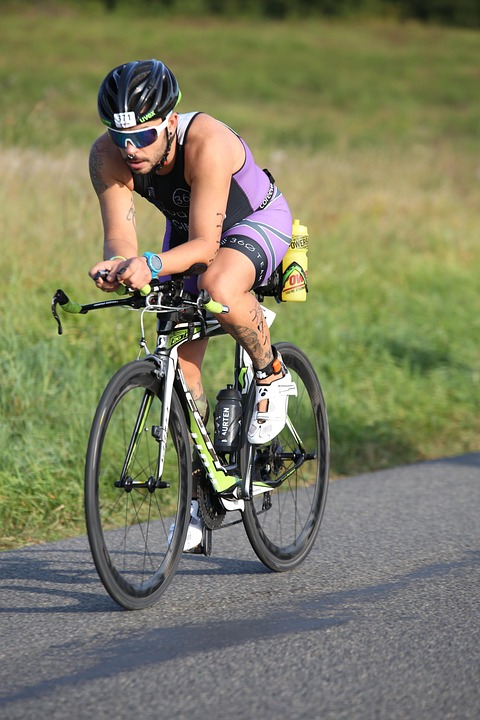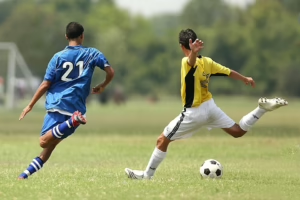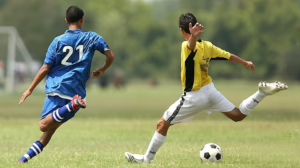Mental Toughness in Triathlon: Strategies for Success
Introduction
Triathlon is one of the most demanding endurance sports, encompassing swimming, cycling, and running. While physical fitness is crucial, mental toughness often sets the greatest athletes apart. This article explores the concept of mental toughness, its significance in triathlon, and practical strategies for developing this critical attribute.
Understanding Mental Toughness
Mental toughness is often defined as the ability to resist, manage, and overcome doubts, fears, and adversities. In sports, it manifests as resilience, focus, determination, and the psychological fortitude to push through challenging situations. Traits associated with mental toughness include:
- Confidence: Believing in one’s abilities and preparations.
- Focus: Maintaining concentration on goals despite distractions.
- Persistence: The ability to continue pursuing goals in the face of obstacles.
- Resilience: Recovering quickly from difficulties or setbacks.
Studies indicate that mental toughness significantly influences performance in endurance sports. According to research, athletes with higher mental toughness levels tend to finish races faster and experience less anxiety and fatigue.[^1]
The Importance of Mental Toughness in Triathlon
Triathletes face unique mental challenges due to the sport’s demanding nature. The competitive field is vast, ranging from amateurs to elite athletes, and the long-duration events can test an athlete’s mental limits. The mental aspects of each discipline—swimming, cycling, and running—also pose distinct challenges:
-
Swimming: Often the most daunting segment for beginners, open-water swimming can induce anxiety due to factors like water temperature, visibility, and the fear of the unknown. The prospect of navigating choppy waters while competing against others can amplify these anxieties.
-
Cycling: This segment requires strategic thinking. Athletes must decide how to pace themselves, deal with changing weather conditions, and manage their energy reserves, all while dealing with fatigue.
- Running: The final leg can be the most grueling. Mental fatigue starts to creep in, and athletes must surpass physical pain to complete the race. Encouraging self-talk and mental visualization can drastically affect performance in this segment.
Mental toughness becomes the key to navigating these psychological hurdles. Athletes who can harness their mental strength often experience improved outcomes, enhanced enjoyment of the sport, and greater resilience in the face of setbacks.
Strategies for Developing Mental Toughness
1. Set Clear Goals
Goal-setting is a fundamental technique used by successful athletes. Clearly defined objectives provide direction and motivation. Goals should be SMART—Specific, Measurable, Achievable, Relevant, and Time-bound. For triathletes, potential goals include:
- Completing a race for the first time.
- Achieving a personal best.
- Improving specific skills like swimming speed or cycling endurance.
Breaking overarching goals into smaller milestones can offer a sense of accomplishment and a roadmap for success. Celebrating achievements along the way reinforces positive behavior and bolsters confidence.
2. Visualization Techniques
Visualization involves mentally rehearsing performances before they take place. Elite athletes often use this technique to enhance their mental readiness. In triathlon, effective visualization can include:
- Imagining the feel of the water during the swim and executing a perfect stroke.
- Visualizing a smooth transition from cycling to running.
- Practicing mental imagery of crossing the finish line with a personal best.
This practice doesn’t just prepare athletes for races; it also instills confidence by creating a bank of successful experiences the athlete can draw upon during tough moments.
3. Positive Self-Talk
The inner dialogue we have with ourselves can significantly influence our performance. Positive self-talk encourages motivation, uplifts our spirits, and can help drown out negative thoughts. Techniques include:
- Using affirmations: Positive statements that reinforce one’s abilities, such as "I am strong" or "I have trained for this moment."
- Constructing mantra phrases: Short, powerful phrases like "push through" or "stay strong" can be recited during times of struggle.
Practicing positive self-talk during training can prepare athletes for the inevitable challenges they’ll face in a race.
4. Building Resilience through Adversity Training
Exposure to uncomfortable situations prepares athletes for the unexpected. Incorporating adversity training can be beneficial, such as:
- Training in adverse weather conditions: Racing in rain or wind can help athletes acclimatize to discomfort.
- Completing a session after a difficult day: Implementing training when tired stimulates mental toughness.
- Engaging in challenging workouts: Set intentionally difficult sessions that force athletes to confront physical and mental barriers.
These experiences build the muscles of mental strength, creating an athlete capable of navigating future challenges.
5. Mindfulness and Meditation
Mental toughness is closely associated with the ability to stay present. Mindfulness practices can help athletes develop focus, decrease anxiety, and improve overall performance. Techniques in mindfulness for triathletes include:
- Breathing exercises: Simple breath awareness techniques can reduce pre-race anxiety and enhance concentration.
- Meditation: Regular meditation practice fosters mental clarity, emotional regulation, and stress management.
- Body scans: These exercises improve self-awareness, helping athletes learn to recognize signals from their bodies, thus enhancing overall performance.
Incorporating mindfulness does not need to be time-consuming. Even a few minutes a day can yield significant benefits over time.
6. Tactical Race Strategies
Preparing for various race scenarios can also bolster mental toughness. Athletes should have strategies for different race conditions, including:
- Pacing: Establishing a realistic approach for pacing oneself throughout the race.
- Coping mechanisms: Developing strategies to combat fatigue or negative thoughts during the race, such as breaking the distance into manageable segments.
- Positive reinforcement: Planning mental checkpoints within the race where athletes can celebrate mini-achievements.
Practice these strategies during training to make them instinctual during the race.
7. Emotional Regulation
Managing emotions is a critical component of mental toughness. Triathletes often experience a wide range of emotions, from excitement to fear. Techniques for emotional regulation include:
- Journaling: Regularly writing about experiences and feelings can help athletes process emotions and learn from them.
- Talking with a coach or mentor: Sharing concerns and getting feedback can help process emotions and solidify strategies.
- Building a support system: Surrounding oneself with positive influences provides encouragement and motivation.
Understanding how to cope with emotions effectively prepares athletes for both success and challenges during races.
8. Lactate Threshold Training
Lactate threshold training involves developing the body’s ability to sustain exercise at high intensities for longer periods. Training at or near this threshold can also enhance mental toughness, as it conditions athletes to deal with the discomfort associated with high-intensity efforts.
Conclusion
Mental toughness is a cornerstone of success in triathlon. While physical preparation is essential, mental strategies can significantly elevate performance. Developing mental toughness requires commitment, practice, and a willingness to confront vulnerabilities. By incorporating goal-setting, visualization, mindfulness, and tactical strategies, triathletes can enhance their resilience and instill a mental edge that could lead to remarkable success.
























Add Comment